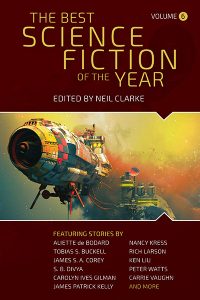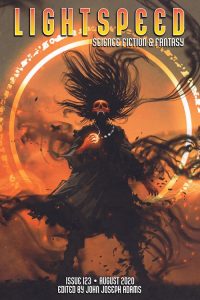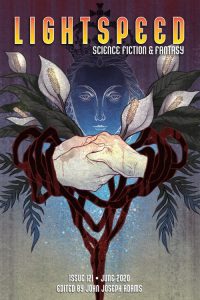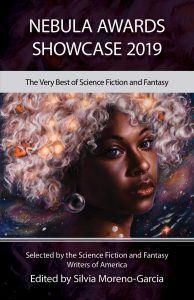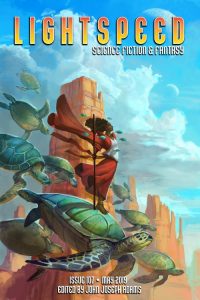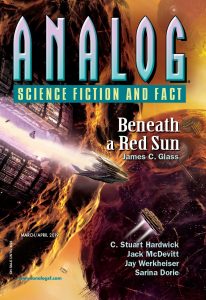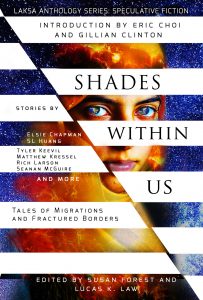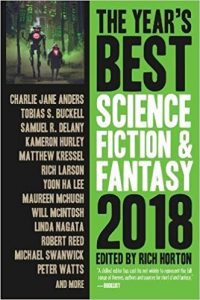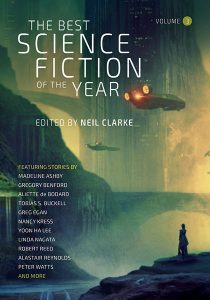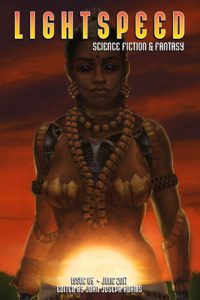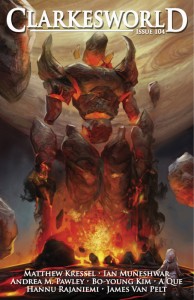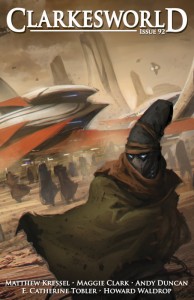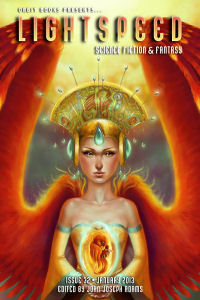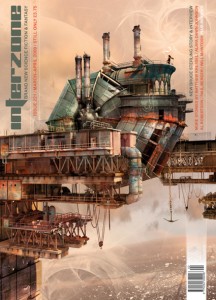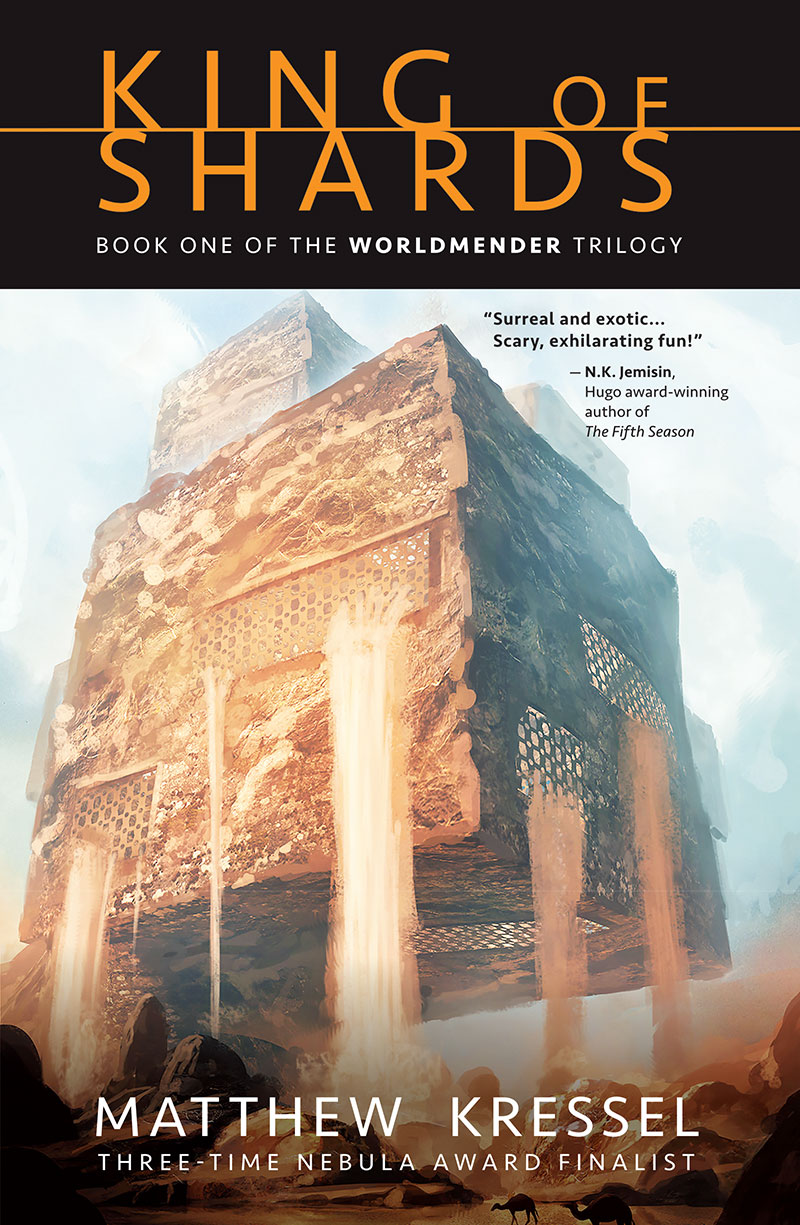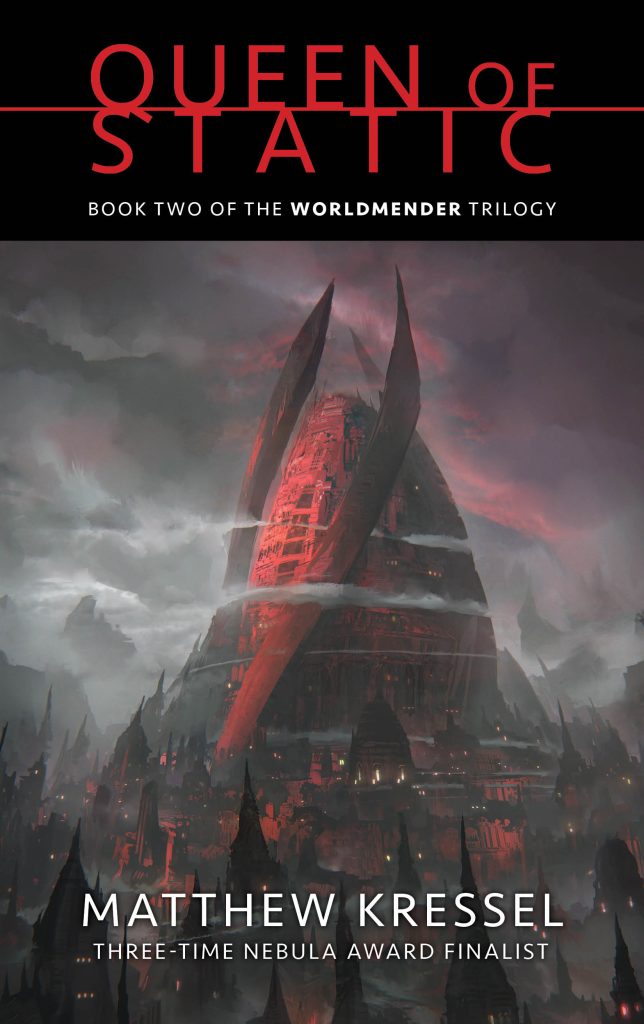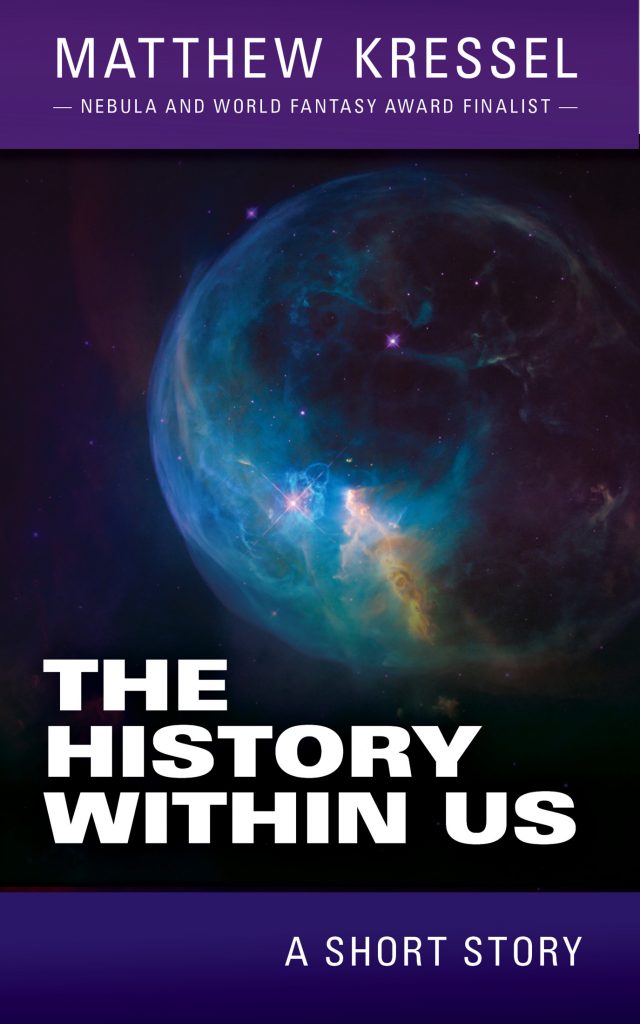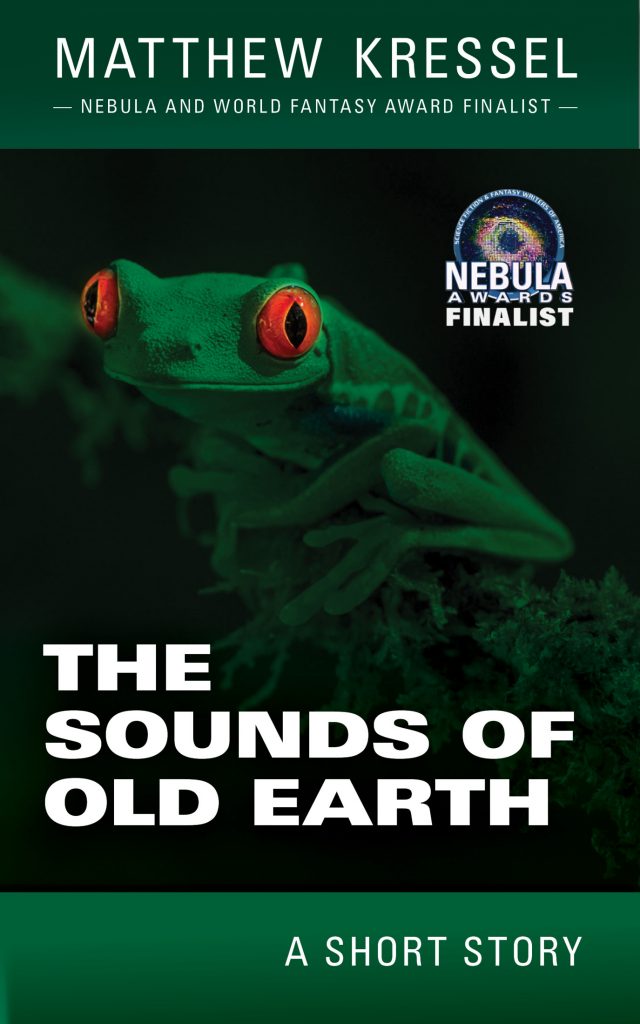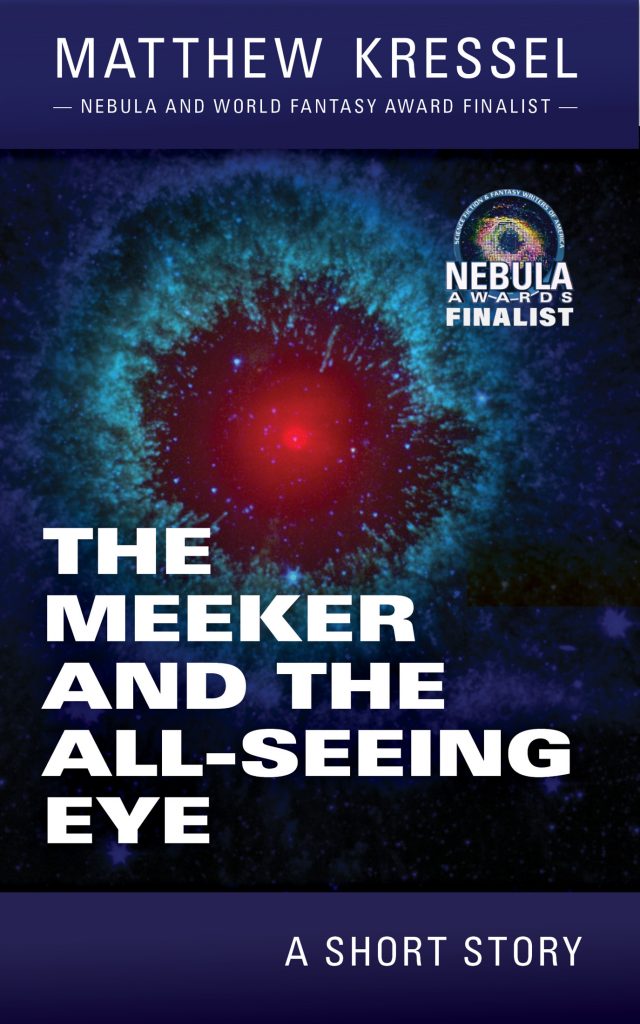I traveled to the Mexican coast recently, and stayed in a hotel in the middle of the jungle. We were visited by quite a number of animal species: lemur, scorpion, iguana, giant spider (!), agouti, flamingo, pelican, barracuda, monkey, bat and even deer. The plant life was so dense that even in the high tropical sun the bottom of the jungle was shaded and dark. The golden pothos, a common houseplant, grew gigantic here, and its leaves, many feet wide, leaned from the tops of palm trees. All around us was a riot of life. It seemed as if the earth itself violently refused to be idle, and instead thrust up all these fecund forms as a great fuck you to the void. We are here, the life seemed to scream. At dusk, the sounds of the jungle rang out in a chorus of life. The creatures refused to be subdued by the setting of the sun.
While there I read a story by Laird Barron, “Mysterium Tremendum” in his collection, Occultation and Other Stories. It’s a great piece, and I don’t think I’m spoiling it by saying it involves other-worldly forces. It got me thinking about life in the Cosmos. The Drake Equation vs. the Fermi Paradox. I thought, How can life be so abundant here on earth and so scarce elsewhere in the universe? There are 300 billion stars in the galaxy and at least 100 billion galaxies in the universe. It seems ridiculous to me, even absurd, to believe that here, on this small orb, is the only place where life has arisen. Look what life did once it did appear: it didn’t cling to existence like a tumbleweed scrounging dry plains for moisture, it thrived. Life exploded. Life turned a volcanic, ashen, sulfurous planet into a jungle. There is life in the volcanic vents and there is life in the coldest glaciers. Life is everywhere on earth, even on the screen that you’re reading this from in the form of microscopic bacteria. You are literally looking through life.
And lately, the more I read about Panspermia, the more I believe in the theory that life began elsewhere in the universe, that by cosmic collisions or perhaps by solar winds, living matter was thrust into deep space toward young stars, where it might seed newly cooled planets. The reason why we can’t discover how life began on earth is because it didn’t. Maybe it began billions of years before the earth was born.
So why hasn’t an alien civilization, one that has a thousand or a million or a billion years on us drop out of the sky in silver ships to say hello? I can think of many reasons. Perhaps intelligent life is rare. Perhaps we are like ants to them, unworthy of attention. Perhaps they do not wish to give humanity, an adolescent race, access to the galaxy, for look how we care and treat our world? Perhaps the answer is much stranger.
I do not know the reason, but I do sincerely believe that in my lifetime, whether through a telescope that can detect changes in seasons on a distant planet, or via a probe landing in our own solar system (perhaps Europa, perhaps Titan, and maybe even Mars) we will find life. And what will that mean for our religions, our sense of cosmic self? How does that make humanity unique if we are simply one species in a vast cosmic jungle of life? I do know that many of our belief systems are inadequate in the face of such grand knowledge, but that science and more specifically science fiction are really the only fields probing this possibility. And to me, the thought that there are billions of worlds out there with strange, colorful, terrifying and wonderful jungles is vastly more exciting than the notion that we are all alone, that humankind’s destiny is tied to earth alone, that we are to close ourselves up and become insular, solipsistic and self-righteous. How can the old beliefs persist in the face of such utter vastness?




